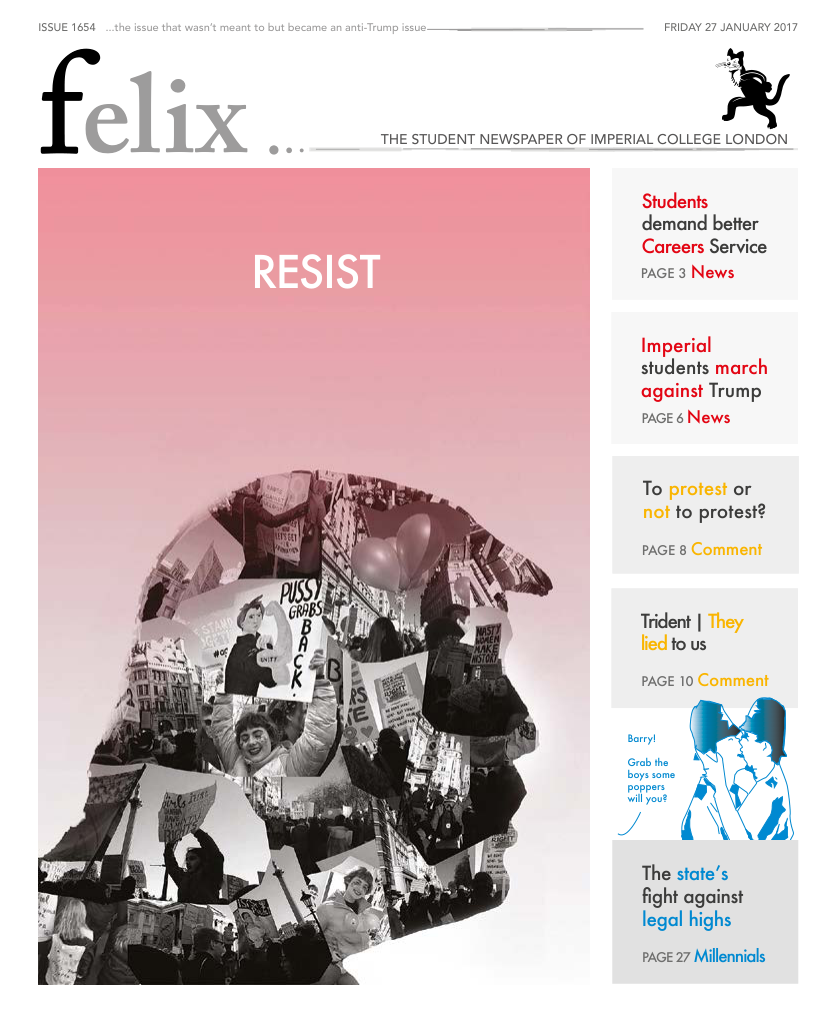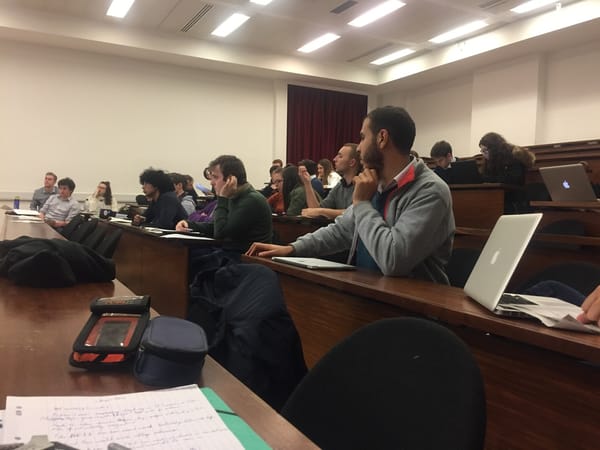Union launches 2017-20 strategy
But where did all the measurables go?

The Union launched a new three year strategy last week in Metric, at an event that was the culmination of a six month effort to meet (or at the very least express) the needs and wants of Imperial students. Despite vigorous consultation though, student reaction was luke-warm.
The strategy is a collaborative effort between the Officer Trustees and the Management of the Union. Efforts first began last March and involved multiple public consultations, surveys and interviews. During the launch, welcome speeches were given by Union President Nas Andriopoulos addressing “the young minds” of Imperial, followed by the Chair of the Board of Trustees, Neil Sachdev, and the Union Managing Director Jarlath O’Hara. Its five main “aims” and 15 “objectives” can be summarised in increasing the Union’s reach, its support capacity, enhancing student enjoyment and “talents”, empowering students and overall ensuring a smooth running Union. The strategy might look nice on paper, however there is not much information on how the Union aims to achieve its objectives. Undeniably “deepening, firing up and extending democracy” is a noble (and meme-inspiring) ambition, though some students felt that the lack of measurable strategic points detracted from the sentiment.
“You can’t just hold an event for deepening, extending and engorging. Where is the rest of the strategy?” said Theresa Davey, a materials PhD student who’s spent nearly a decade at Imperial. “Five sets of bullet points and three student testimonials are not a strategy that you can have a party for.” This becomes particularly obvious when comparing the new strategy to the previous one. Although the 2013-16 strategy had very similar aims, each aim had not only more objectives but objectives which were much more tangible. For example to improve the student experience, the 2013-16 strategy clearly and concisely outlined eight measures to be adopted by 2016 such as “ensure that the Union delivers at least three key contributors to the College’s Graduate Attributes project” or “increase the number of students employed by the Union in each year of the plan”.
Similarly to build the student community the union would try to “publish an annual ‘Advocacy to Action’ Report” and “develop, publish and deliver a Campus Outreach Plan” by 2016. These are parts from two specific proposed actions from a list of seven.

The new strategy on the other hand aims to “enhance the enjoyment and talents of our members” (i.e. enhance student experience in 2013 lingo) by “[providing] systems, staff support and funding for volunteers to enable them to maximise the impact of their Roles” and “[being] recognised as leaders for the value that our activities add to students’ personal and professional development”. These are two full objectives from a list of three and quite literally amount to almost a fifth of the strategy.
“The 2013-16 and 2017-20 strategies are intentionally very different in their style and composition,” says Andriopoulos. “The 2013-16 strategy, Our Plan, had the task of transforming Imperial College Union after a challenging period, and it did so by setting specific, measurable targets – consolidating our strengths (such as Clubs, Societies & Projects), creating specific new initiatives (such as the Student Academic Choice Awards, Imperial Plus, and Give It A Go), and focusing on financial viability.” Andriopoulos refers to the disastrous 2011 Summer Ball which made a loss of over £100,000, effectively bankrupting the Union.
Yet it’s not quite as straightforward to tell what was actually achieved during the 2013-16 plan. There is no comprehensive report on the strategy. Instead there are plans “to publish a review of Our Plan 2013-16 later this academic year.” Andriopoulos continues by saying that “when the plan was in effect, there was an annual Operational Plan which set out that year’s specific targets, and the performance of staff teams was assessed against these. We also published updates in our Impact Reports, as well as extensive communication to students and internal communication to staff.” It’s unclear however what the policy makers learned from the previous strategy and whether they’ve implemented it in this round of policy making.
The Union claims its strategy to be in line with best practice from the charitable sector, drawing comparison with the strategies of Amnesty International and Shelter, which have annual operational plans with more concrete, measurable goals. The Union does suffer an annual brain drain due to the electoral process though, so coming up with an annual operational plan and handing it over to a new team of Sabbatical Officers every year might not be the best plan for moving forward effectively. With such a short term vision and a lack of long term measurables, it is easy to lose the ball especially when most changes require years of lobbying.
On the plus side the students did get a series of positive announcements including a long overdue 10% increase in Clubs and Societies spending (which has been lagging behind inflation for a number of years), as well as the refurbishment of the Charing Cross common room.
According to a Union source that would like to remain anonymous, the lack of detailed action proposals might be due to current staffing problems. There certainly has been a lot of mobility recently, with several staff members leaving the union and reshuffling within the organisation over the last year. The union has refuted such claims though.







